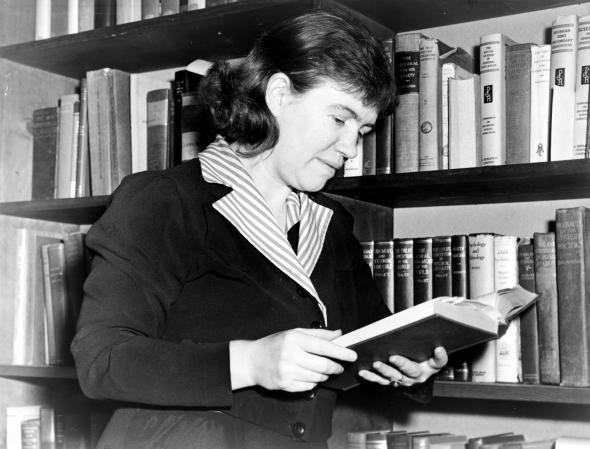In April of 1978, 77-year-old anthropologist Margaret Mead wrote an intriguing piece for the women’s magazine Redbook: “A Proposal: We Need Taboos On Sex At Work.” The piece came after a few years of feminist activism on the issue of sexual harassment. By 1978, activists had succeeded in increasing the visibility of the problem, which had been the subject of articles in the Wall Street Journal, Harper’s, The New York Times, and Ms., as well as television and radio coverage.
The anthropologist, who began her public career in 1928 by publishing Coming of Age in Samoa, a book that tacitly argued for a more permissive approach to adolescent female sexuality in the United States, lobbied here, instead, for the institution of a new kind of restriction.
To introduce the idea to her readers, Mead ran through a basic explanation of the social benefits of taboos. “I realize this must sound strange to a generation of young women who have felt the need to break and abandon taboos of many kinds,” she wrote. But the deepest taboos in any society “keep the social system in balance,” she argued. The taboo, even more so than a law, spoke to what a society believed in its core: “Prohibiting certain forms of behavior…affirms what we hold most precious in our human relationships.” So, for example, a society that believes children should grow up free of the fear of sexual abuse in the home would institute an incest taboo.
The heart of Mead’s proposal was that American society, faced with women entering the workplace in large numbers, should forge a new taboo accordingly:
How to deal with the problems, the social discord and dissonance, in the relations between women and men? The complaints, the legal remedies and the support institutions developed by women all are part of the response to the new conception of women’s rights. But I believe we need something much more pervasive, a climate of opinion that includes men as well as women, and that will affect not only adult relations and behavior on the job but also the expectations about the adult world that guide our children’s progress into that world.
What we need, in fact, are new taboos that are appropriate to the new society we are struggling to create—taboos that will operate within the work setting as once they operated within the household. Neither men nor women should expect that sex can be used either to victimize women who need to keep their jobs or to keep women from advancement or to help men advance their own careers. A taboo enjoins. We need one that saves clearly and unequivocally, “You don’t make passes at or sleep with the people you work with.”
In 2008, legal scholar Mary Anne Case explored the idea in the Vermont Law Review, refining it somewhat: “What I would want to focus on discouraging in the workplace is not any and all eroticism or search for sexual partners, but sex initiated between people hierarchically arranged in a direct reporting relationship with one another.”
Countering another scholar who had argued that a workplace sex taboo would push male supervisors to avoid business trips or closed-door meetings with female employees, causing those employees to lose out on key opportunities, Case argued: “It is precisely in the absence of an effective taboo that we worry about leaving men unsupervised with women, or adults unsupervised with children.” A taboo against supervisor-supervised sex would render a shared business trip a neutral affair, totally uncharged by possibility.
All questions of practical feasibility aside, the Mead idea intrigues as a thought experiment. In order to create a new taboo for this purpose, we would all have to understand how harmful workplace harassment is to women’s prospects, and to agree, collectively, that what we want is for it to cease. Almost forty years later, the anthropologist’s proposal seems earnest, quaint, and utterly impossible.
I don’t usually like to write about documents on the Vault that you can’t read for yourself, but I can’t find a copy of this one online, and I thought it was too interesting to pass up. If you have access to the database Women and Social Movements in the United States, 1600-2000, you can read it in this collection of documents on second-wave activism and sexual harassment, curated by scholar Carrie N. Baker.
